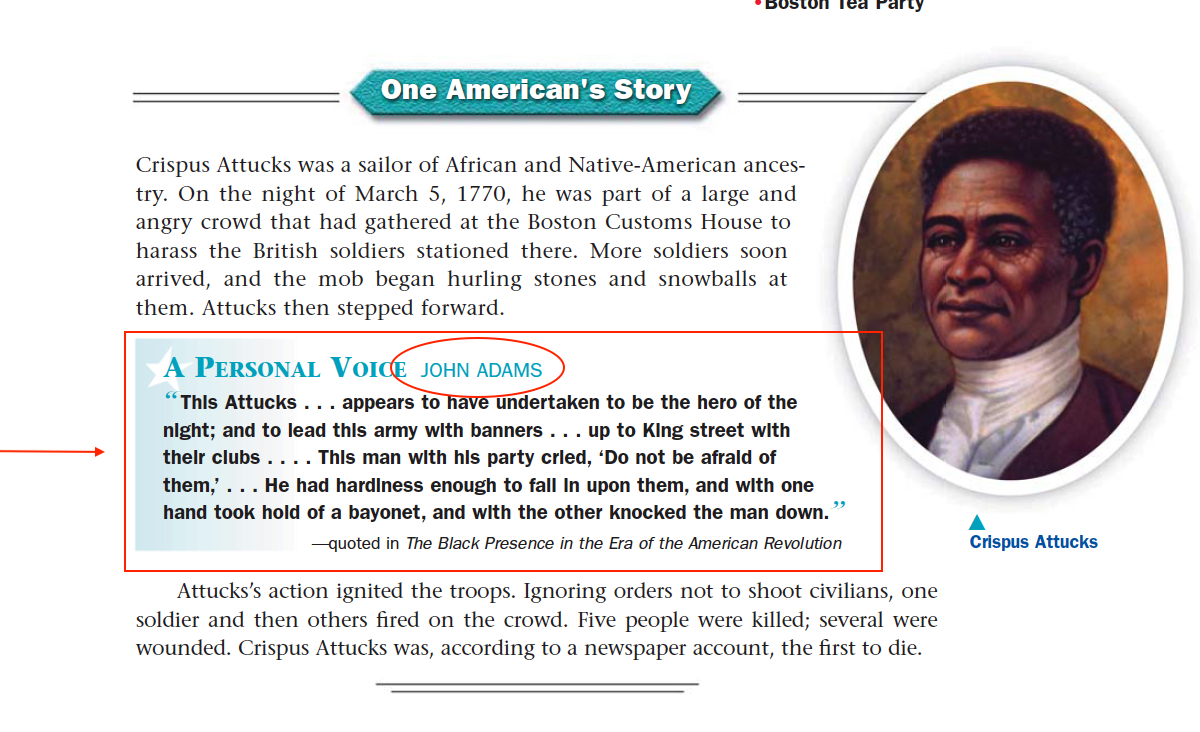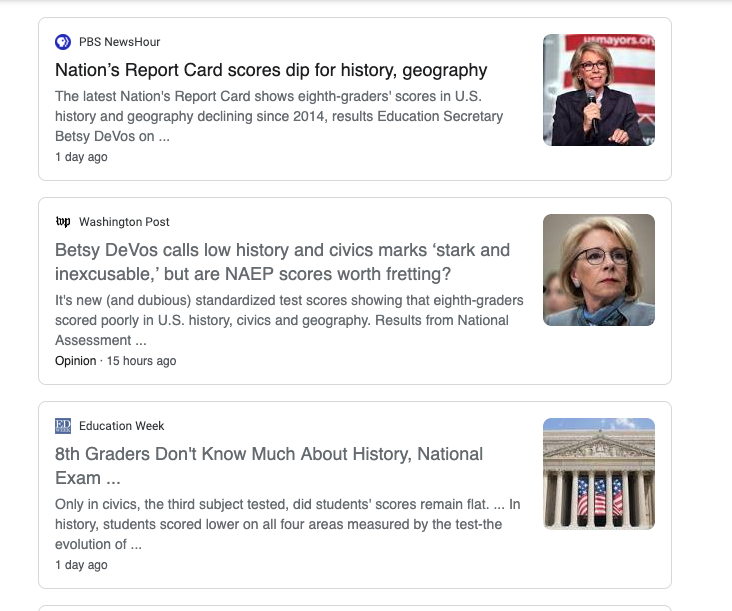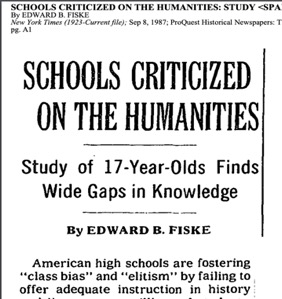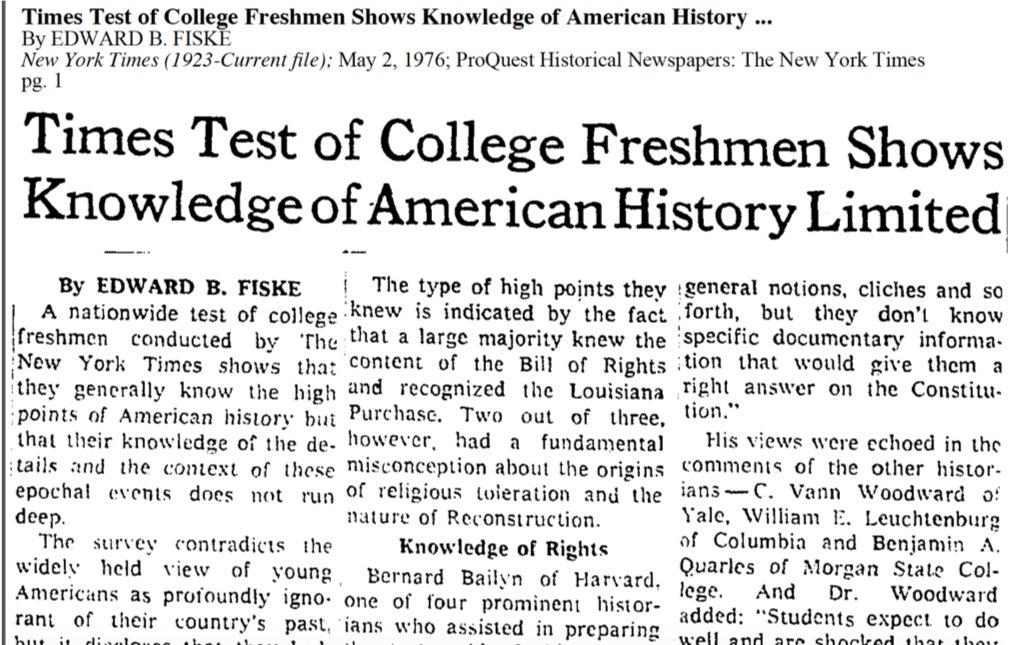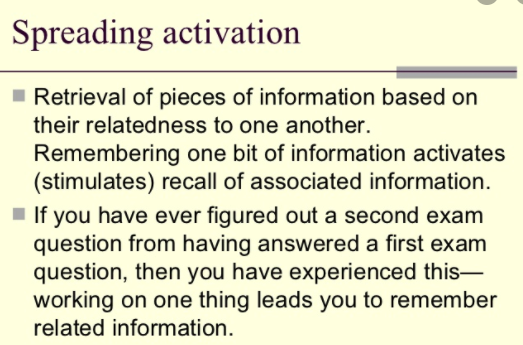
Why Learn History:
A brief respite from election jitters: How textbooks whitewash anti-Blackness. (A threaded tweet easily adapted as lesson plan, with accompanying materials) #sschat
A brief respite from election jitters: How textbooks whitewash anti-Blackness. (A threaded tweet easily adapted as lesson plan, with accompanying materials) #sschat
2. Boston Massacre: I’m sure many of you show students Revere’s piece of “fake news” (see the good visual interactive here, ap.gilderlehrman.org/resource/paul-… 
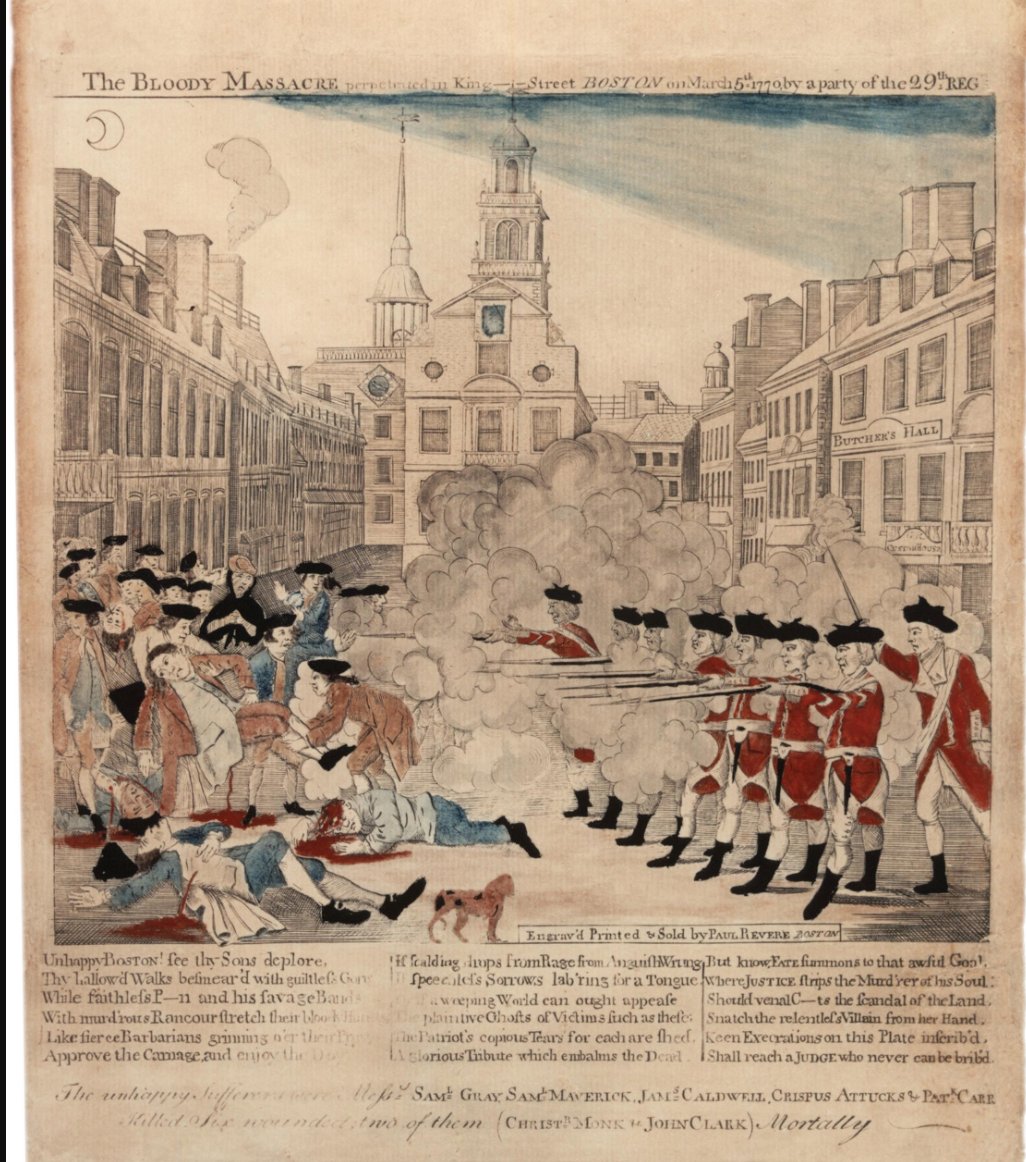
3. And you tell them about Crispus Attucks, “the first martyr of the American Revolution,” a man of Native & African heritage. (featured on a 1998 US commemorative dollar—except it’s a complete fabrication; Attucks, a seaman, never sat for portraiture). 
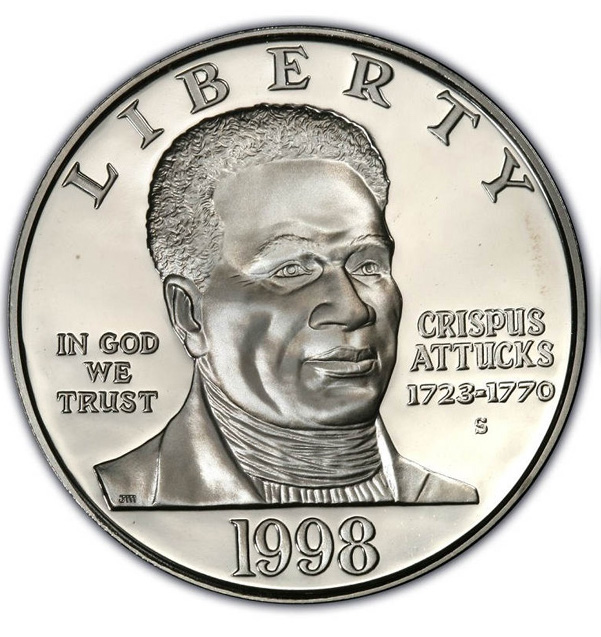
5. This comes from a major 11th grade US history textbook, Holt McDougal/Houghton Mifflin Harcourt's The Americans.
6. What students don't learn from the book is the context of Adams remarks: he served as defense attorney for 9 British soldiers accused of murder. Why, then, would Adams praise Attucks, one of the protestors, as a “hero”?
7. The secret is revealed by restoring of the context lost by three separate ellipses. Viewed in context, we clearly see what Adams meant. 
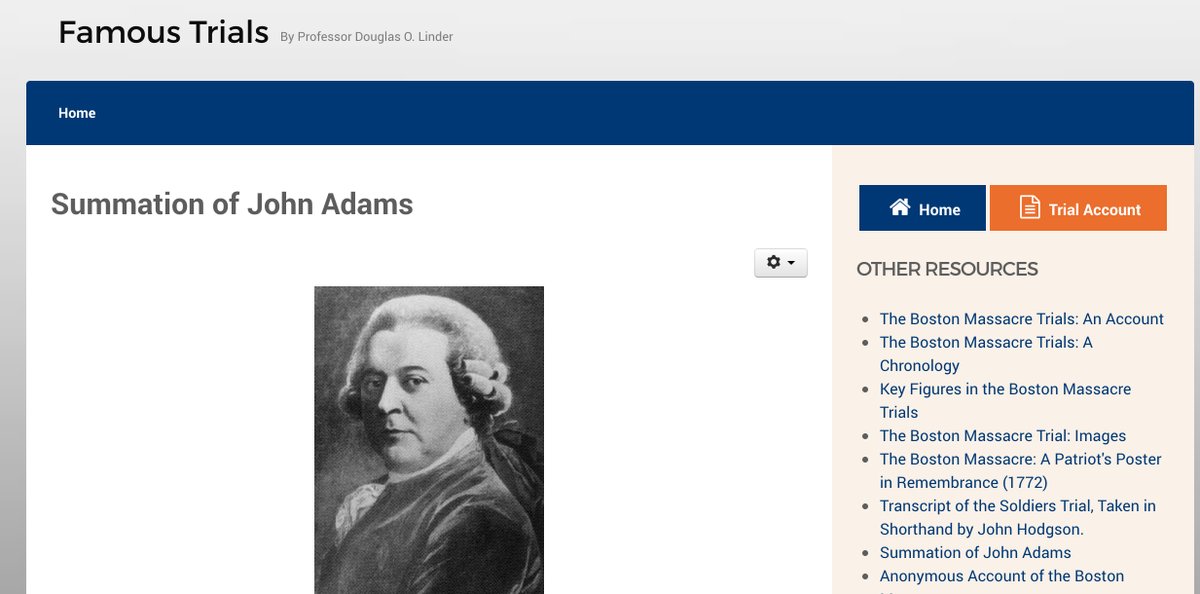
8. Attucks was a “hero” who presided “at the head of such a rabble of Negroes, &c.,” commanding his “myrmidons” who were “shouting and huzzaing, and threatening life . . . throwing every species of rubbish they could pick in the street.” famous-trials.com/massacre/208-s…
9. To drive a wedge between the “good people of the town” and the “rabble,” Adams used the trope of the fearsome non-White body, how the looming figure of the “stout Attucks was enough to terrify any person.”
10. The textbook quotes Adams who quotes C. Attucks (“Do not be afraid of [the British soldiers]”) but rips the phrase from its bone-chilling conclusion: “Do not be afraid of them, they dare not fire, Kill them! Kill them! Knock them over! And he tried to knock their brains out.”
11. To Adams, this “Attucks from Framingham” was a hoodlum, an outside agitator “to whose mad behaviour, in all probability, the dreadful carnage of that night, is chiefly to be ascribed.”
12. Race-baiting proved a winning strategy. The jury found British Captain Preston not guilty, along with six of his soldiers. As for two others, the jury reduced charges of murder to manslaughter, branding the two with the letter M (for “manslayer”) on the “brawn of the thumb.”
13. Professor Farah Peterson, in a brilliant article, explained that Adams succeeded in convincing the jury that the British soldiers had “only killed a black man and his cronies and that they didn’t deserve to hang for it.”
theamericanscholar.org/black-lives-an…
theamericanscholar.org/black-lives-an…
14. I have to imagine that in editing Adams words, the textbook's authors thought they were doing something noble: giving American children of all hues a hero who is a person of color.
15. But a string of ellipses cannot perform magic. Three dots erase the stain of racism no better than a bathroom spray masks the stench of a skunk.
16. Editorial subterfuge only forestalls a reckoning.
17. Last month, POTUS denounced a leftist assault on American history. “We must clear away the twisted web of lies in our schools and classrooms” and teach our children to “love America with all of their heart and all of their soul.”
whitehouse.gov/briefings-stat…
whitehouse.gov/briefings-stat…
18. But love built on a lie is a false love. It achieves its mirage by making truth its victim.
19. The goal of historical study is neither to cultivate love nor hate, anyway.
20. History should acquaint us with the dizzying spectrum of our humanity: lofty moments of nobility mixed in with ignominious descents into knavery.
21. When history’s mirror intones a single phrase—that we’re the fairest of them all—it freezes us in childhood & stunts our growth.
22. History that impels us to look at the past, unflinchingly and clear-eyed, does not diminish us or make us less patriotic. Just the opposite: It makes us grow up. Understanding who we were allows us to understand who we are now.
23. Only then can we commit to doing something about it. That should be the goal of history education.
Our children deserve nothing less.
dianeravitch.net/2020/10/27/sam…
Our children deserve nothing less.
dianeravitch.net/2020/10/27/sam…
• • •
Missing some Tweet in this thread? You can try to
force a refresh
